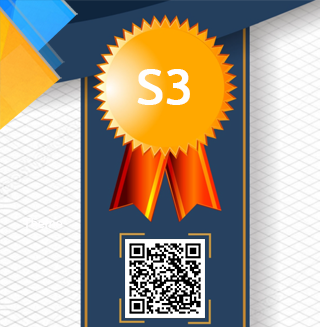Comparison of Reading and Listening to Working Memory Ability with Dementia Disorders in Surakarta
DOI:
https://doi.org/10.25311/keskom.Vol11.Iss1.2161Abstract
Dementia is a complex disorder with the main symptom being a decline in areas of cognitive function, one of which is working memory. Working memory plays a role in cognitive-linguistic. If language ability decreases, then language skills are also disturbed, so it needs to be improved with activities such as reading and listening. The aim of this study was to compare reading and listening skills to working memory in people with dementia. This study employs a quantitative method with a cross-sectional design. The sample obtained amounted to 12 people based on the Slovin formula and the sampling technique using cluster random sampling. Data collection lasted 10 days, around October-November. Dementia screening using the MMSE form, working memory using the Numerical Memory Check form, reading and listening using a questionnaire that has been tested for validity and reliability. The results of bivariate analysis using multiple linear regression with a coefficient obtained a value of p = 0.381 and p = 0.708, and multivariate analysis with ANOVA obtained a value of p = 0.653, indicating that no analysis of the comparison of reading and listening to working memory ability in dementia disorders was conducted. In conclusion, there is no comparison between reading and listening and working memory ability in dementia disorders in Surakarta.
Downloads
References
1. Hegde MN. A coursebook on aphasia and other neurogenic language disorder. Fifth Edit. Plural Publishing. San Diego, California: Plural Publishing, Inc.; 2024. 426 p.
2. Prahasasgita MS, Lestari MD. Stimulasi Fungsi Kognitif Pada Lanjut Usia Di Indonesia: Tinjauan Literatur. Bul Psikol. 2023;31(2):247.
3. Schwertner E, Pereira JB, Xu H, Secnik J, Winblad B, Eriksdotter M, et al. Behavioral and Psychological Symptoms of Dementia in Different Dementia Disorders: A Large-Scale Study of 10,000 Individuals. J Alzheimer’s Dis. 2022;87(3):1307–18.
4. Wesnes KA, Harrison JE. The evaluation of cognitive function in the dementias: methodological and regulatory considerations. Dialogues Clin Neurosci. 2003;5(1):77–88.
5. Angelopoulou E, Drigas A. Working memory, attention and their relationship: A theoretical overview. Res Soc Dev. 2021;10(5):e46410515288.
6. Lee MS, Kim BS. Effects of working memory intervention on language production by individuals with dementia. Neuropsychol Rehabil [Internet]. 2020;1–25. Available from: https://doi.org/10.1080/09602011.2020.1789479
7. Wolf MC, Muijselaar MML, Boonstra AM, de Bree EH. The relationship between reading and listening comprehension: shared and modality-specific components. Read Writ. 2019;32(7):1747–67.
8. Language and Reading Research Consortium, Jiang H, Farquharson K. Are working memory and behavioral attention equally important for both reading and listening comprehension? A developmental comparison. Read Writ. 2018;31(7):1449–77.
9. Clinton-Lisell V. Listening Ears or Reading Eyes: A Meta-Analysis of Reading and Listening Comprehension Comparisons. Rev Educ Res. 2022;92(4):543–82.
10. Sahir SH. Metode Penelitian. Try K, editor. Banguntapan: Penerbit KBM Indonesia; 2021. 83 p.
11. Abduh M, Alawiyah T, Apriansyah G, Sirodj RA, Afgani MW. Survey Design: Cross Sectional dalam Penelitian Kualitatif. J Pendidik Sains dan Komput [Internet]. 2023;3(1):31–9. Available from: https://doi.org/10.47709/jpsk.v3i01.1955
12. Santoso A. Rumus Slovin: Panacea’ Masalah Ukuran Sampel? Suksma J Psikol Univ Sanata Dharma. 2023;4(2):24–43.
13. Fajrin F, Leonardi T. Hubungan Persepsi Iklim Sekolah Dengan Keterlibatan Orang Tua Dalam Pendidikan Anak Dengan Gangguan Spektrum Autisme (GSA). J Psikol Pendidik dan Perkemb. 2019;8(1):69–79.
14. Slamet R, Wahyuningsih S. Validitas Dan Reliabilitas Terhadap Instrumen Kepuasan Kerja. Aliansi J Manaj dan Bisnis. 2022;17(2):51–8.
15. Alvin, Nastiti P, Marsella E. Identifikasi Faktor Loyalitas Pengguna pada Shopee Games Menggunakan Expectation-Confirmation Model (ECM). Edu Komputika J. 2023;10(1):38–45.
16. Amruddin, Agustina TS, Rusmayati NGAL, Ningsih KP, Wulandari S, Yuniati I, et al. Metode Penelitian Kuantitatif. 1st ed. Sukmawati F, editor. Sukoharjo: Pradina Pustaka; 2022. 1–235 p.
17. Mohanathasan C, Fels J, Schlittmeier S. Listening to two-talker conversations in quiet settings: The role of listener’s cognitive processing capabilities for mmory and listening effort. Sci Rep. 2024;14(22764):1–12.
18. Morris BM, Lonigan CJ. What components of working memory are associated with children’s reading skills? Learn Individ Differ. 2022;95:1–31.
19. Chang YH, Wu IC, Hsiung CA. Reading activity prevents long-term decline in cognitive function in older people: Evidence from a 14-year longitudinal study. Int Psychogeriatrics. 2021;33(1):63–74.
20. Peng P, Barnes M, Wang CC, Wang W, Li S, Swanson HL, et al. Meta-analysis on the relation between reading and working memory. Psychol Bull. 2018;144(1):48–76.
21. Guijo LM, Horiuti MB, Nardez TMB, Cardoso ACV. Listening effort and working memory capacity in hearing impaired individuals: an integrative literature review. Rev CEFAC. 2018;20(6):798–807.
22. Sanchez V. The Relationship Between Hearing Ability & Cognition/Dementia Victoria. Starkey Hearing Technologies [Internet]. 2022 [cited 2024 Dec 2];1–3. Available from: https://order.starkeypro.com/pdfs/technical-papers/The_Relationship_Between_Hearing_Ability_and_Congnition_Dimentia.pdf
Downloads
Submitted
Accepted
Published
How to Cite
Issue
Section
License
Copyright (c) 2025 Jurnal kesehatan komunitas (Journal of community health)

This work is licensed under a Creative Commons Attribution-NonCommercial-ShareAlike 4.0 International License.





























